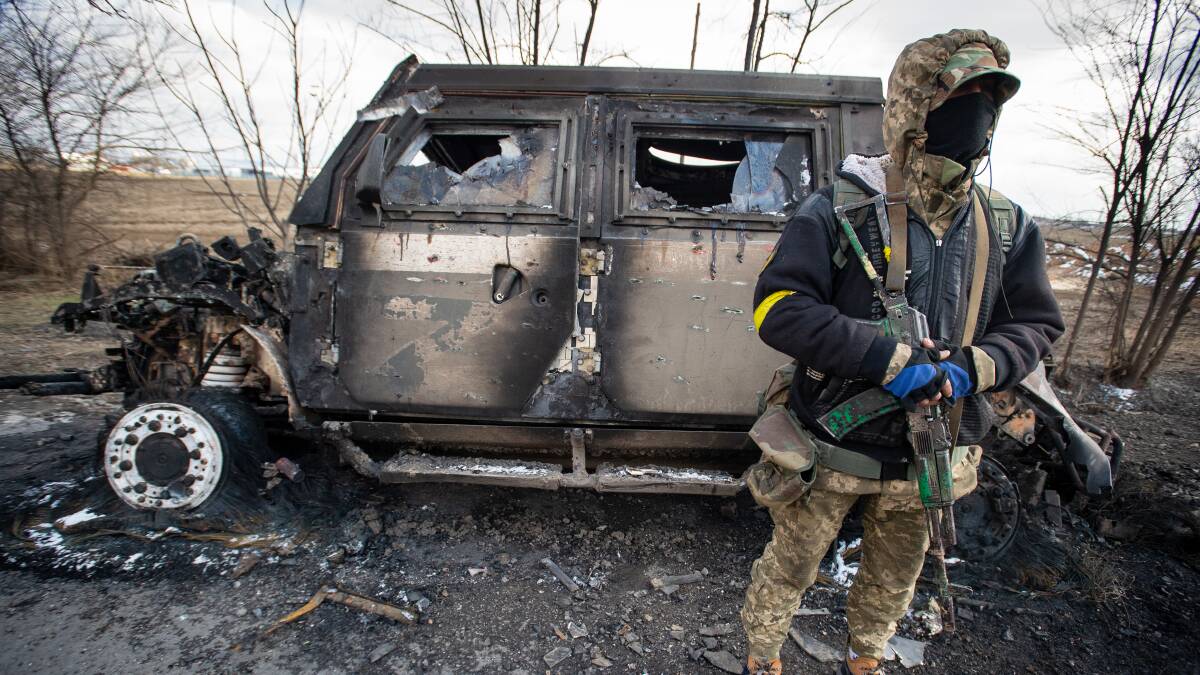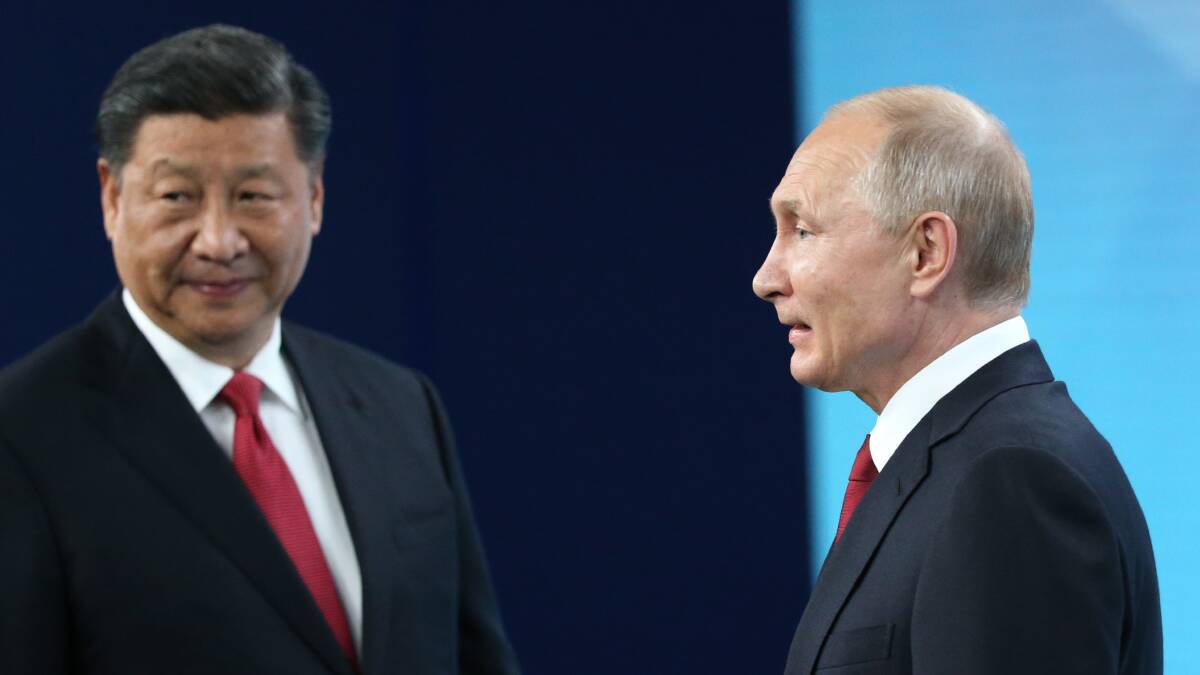
Vladimir Putin has given them lots to think about in Beijing.
Russia, with which China has a newly deepened partnership, suddenly looks not like a strong accomplice but a weakling.
Also, by launching a war that's gone wildly wrong, Putin unintentionally has warned the Chinese leadership to be cautious before trying to conquer Taiwan.
Another lesson will surely be noted by colleagues of Xi Jinping and making him particularly uncomfortable: a country should not let itself come under the control of an absolute ruler.
Six weeks ago, this column described how China was strengthened by the "no-limits" partnership that it and Russia declared on February 4.
For example, Russia, seeing China as no threat, could turn its armed forces more towards Europe, adding pressure there that would distract the US from defending Taiwan.
Now it turns out that Russia's armed forces are not nearly as strong as everyone, including Putin, thought.
Their invasion of Ukraine has been a shemozzle.
Putin's army and air force looked powerful on paper, but analysts all over the world have been surprised at how little military effect they generate when actually committed to battle.
Even if Russia eventually wins by simply overpowering Ukraine and taking territory (and not by some form of terror, such as a poison-gas or nuclear attack), Putin and his generals will remain humiliated.
They should have done far better than this.
As it progresses, the war is further weakening Russia's forces.
They're losing equipment, such as infantry fighting vehicles, helicopters and missile systems.
Russian soldiers are losing confidence as they watch their comrades die or suffer horrible wounds and their officers foul up execution of the campaign.
After the fighting stops, Russia will have to replace the equipment it has lost and won't have much regard for a lot of what survives - nor for its ability to use it.
Lower ranks, and probably most officers, will be terrified by any suggestion of war with the NATO alliance of the US, Canada and European countries.
So the strategic pressure that Russia will put on the US in Europe is no longer so clear.
On the one hand, it has demonstrated reckless willingness to launch a war, and the West must take that seriously.
On the other hand, NATO now knows that Russia's non-nuclear forces are weak.
European countries are increasing defence spending to deter Russia.
Maybe the US will have to maintain a permanently larger presence in Europe, too - or maybe it will judge that European rearmament is enough and it can concentrate on the Western Pacific.
Either way, Xi can blame Putin for creating a better-armed West, not to mention an international mood that is intolerant of authoritarian thugs.
But Xi can thank Putin for a profoundly important warning: the outcomes of wars are unpredictable.

If generals and admirals one day tell Xi that they're confident they can defeat the US in a war over Taiwan, he'll have good reason for sceptically raising an eyebrow.
A well-understood factor behind the unpredictability of war is that neither side can guess everything that its opponent will do.
The enemy will almost always come up with surprises.
Less well known is the difficulty of assessing what either side can do.
The inherent capability of hardware isn't really the problem.
For example, the missiles, radars and communications links of an army's anti-aircraft batteries can be tested and their performance measured.
For the systems of a potential enemy, this can be more or less estimated.
But how everything works in practice also depends on much fuzzier things, such as training, morale, maintenance, supply and tactics.
As Russia is showing in Ukraine, a country may not know much about its own effectiveness in those areas, let alone the abilities of a country it's considering attacking.
"So, admiral, just how sure are you that we can carry an invasion army across the Taiwan Strait?" Xi might ask.
Yes, the Chinese side reportedly wins most war games conducted by the US military, and Washington and Canberra had better be worried about that.
But that isn't nearly enough reason for Beijing to be confident.
These things are just too uncertain.
Another cause for caution in Beijing: a lot of Chinese military equipment has been imported from Russia or is based on Russian technology.
If such stuff hasn't performed well against Ukraine, which is similarly armed, its dependability against US forces must now be in greater doubt.
MORE AGE OF THE DRAGON:
So, thanks to Putin and the suffering of the Ukrainian people, Taiwan is looking a bit safer for the next few years.
Fingers crossed.
Xi has been China's leader for almost 10 years.
The Chinese Communist Party used to make that the limit, in part to prevent one person from accumulating too much power and leading the country to disaster.
It had that experience with Mao Zedong up to 1976.
Chinese people know the reasons behind this: one person who has centralised power is more likely to make a rash mistake than a group, and an all-powerful ruler is not likely to hear disagreeable warnings from agreeable advisers.
Despite that, Xi has been able to get the limit abolished, so he is set to get another five years beginning late this year.
Probably most analysts have been assuming that if he wanted to stay beyond 15 years, he could.
Now, looking at Putin leading his country into a disastrous war and, because of the Western response, economic ruin, senior officials around Xi are probably thinking again about how the former rule was a good idea.
They're not powerless, and the party does not yet entirely belong to Xi.
Maybe he'll get five more years but no more after that.
- Bradley Perrett was based in Beijing as a journalist from 2004 to 2020.


